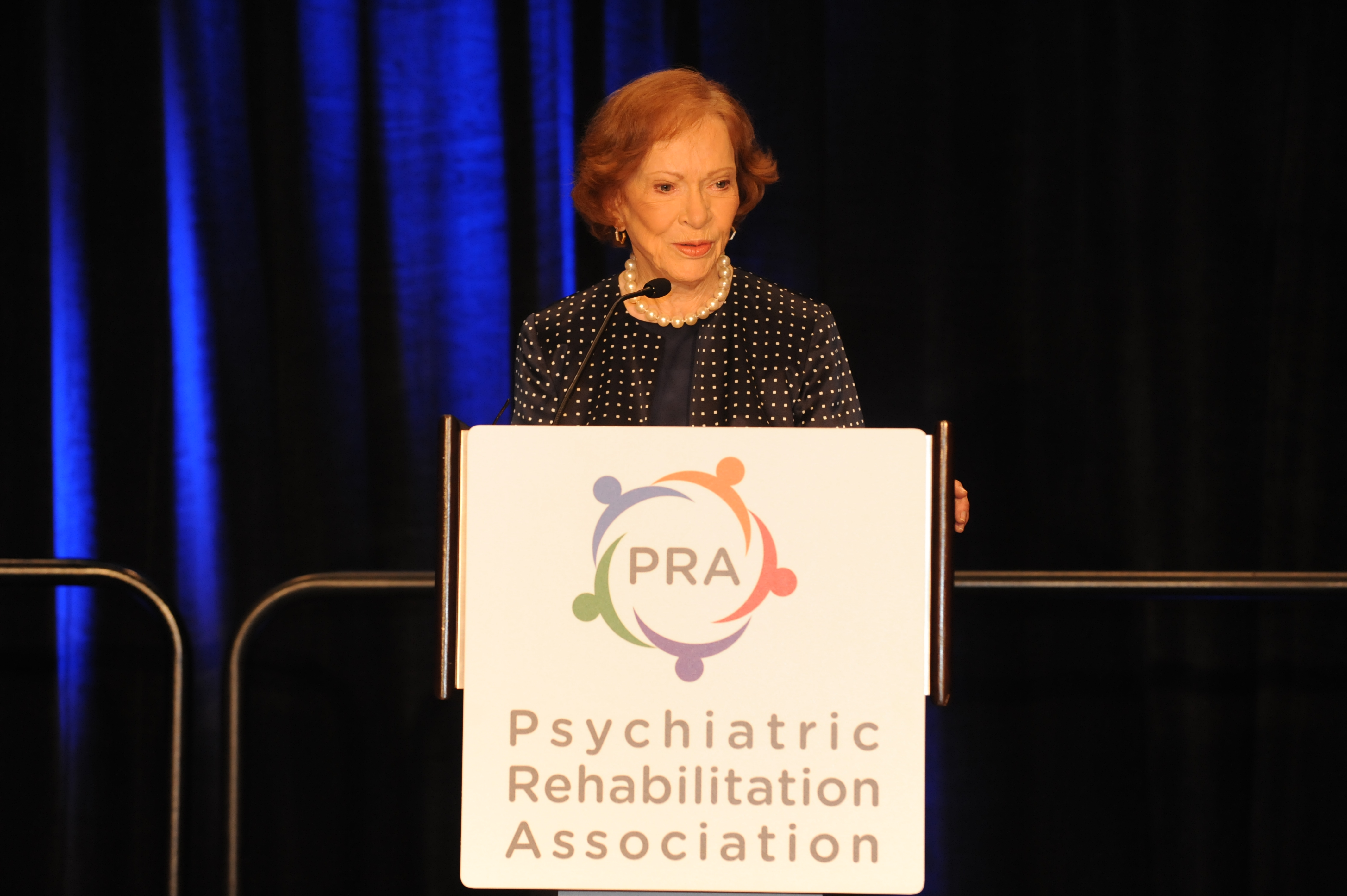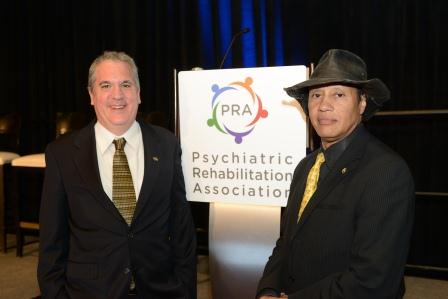You are here
The Psychiatric Rehabilitation Association (PRA) was thrilled to host former First Lady Rosalynn Carter, Dr. Benjamin Druss, MD, MPH, Emory University’s Rollins School of Public Health, and Dr. Carl C. Bell, MD, Director, Institute for Juvenile Research, UIC Chicago (Birthplace of Child Psychiatry), for keynote sessions at the 2013 PRA Annual Conference June 9th - 12th. At this overflowing gathering of mental health professionals, the keynote addresses further validated the essential work of the organizations and practitioners delivering psychiatric rehabilitation programs.
 At her Wednesday, June 12 Keynote Address, Mrs. Carter emphasized the importance of changing the way we talk about stigma by being as open about mental illness as we are about other medical conditions. She also spoke about President Obama’s intention to launch a national conversation to understand mental health, especially as it relates to children, which is also one of PRA’s leading initiatives this coming year. She lauded the work of PRA’s focused role in growing and training the recovery workforce around the globe, a key element of helping to deliver improved mental and behavioral health outcomes.
At her Wednesday, June 12 Keynote Address, Mrs. Carter emphasized the importance of changing the way we talk about stigma by being as open about mental illness as we are about other medical conditions. She also spoke about President Obama’s intention to launch a national conversation to understand mental health, especially as it relates to children, which is also one of PRA’s leading initiatives this coming year. She lauded the work of PRA’s focused role in growing and training the recovery workforce around the globe, a key element of helping to deliver improved mental and behavioral health outcomes.
 During the Opening General Session on Monday, June 10, Dr. Druss spoke about his research which works to build linkages between mental health, general medical health, and public health. During his keynote he stressed how because of information technology there is real potential to improve care and to reframe the issue of disparity. Druss emphasized the importance of psychiatric rehabilitation professionals in that they have the opportunity to bring a broader recovery workforce into the health field, especially through peer supporters.
During the Opening General Session on Monday, June 10, Dr. Druss spoke about his research which works to build linkages between mental health, general medical health, and public health. During his keynote he stressed how because of information technology there is real potential to improve care and to reframe the issue of disparity. Druss emphasized the importance of psychiatric rehabilitation professionals in that they have the opportunity to bring a broader recovery workforce into the health field, especially through peer supporters.
Also during the Opening General Session, Dr. Bell shared his research and remarkable insights on why now more than ever it is essential to understand social justice factors and consider their effects on local and federal policies related to mental health treatment, public safety, and the need for funding required to support new services and treatment initiatives, and the ways in which research can inform these decisions.



